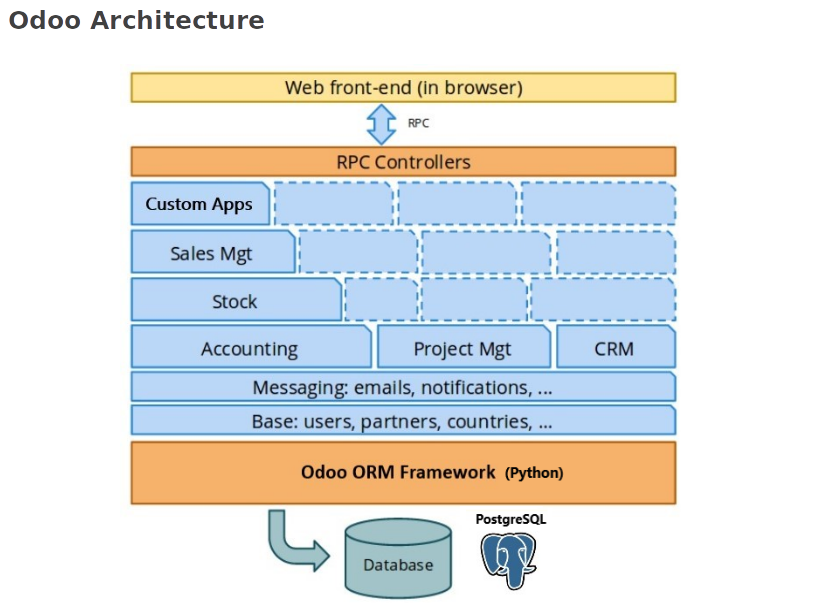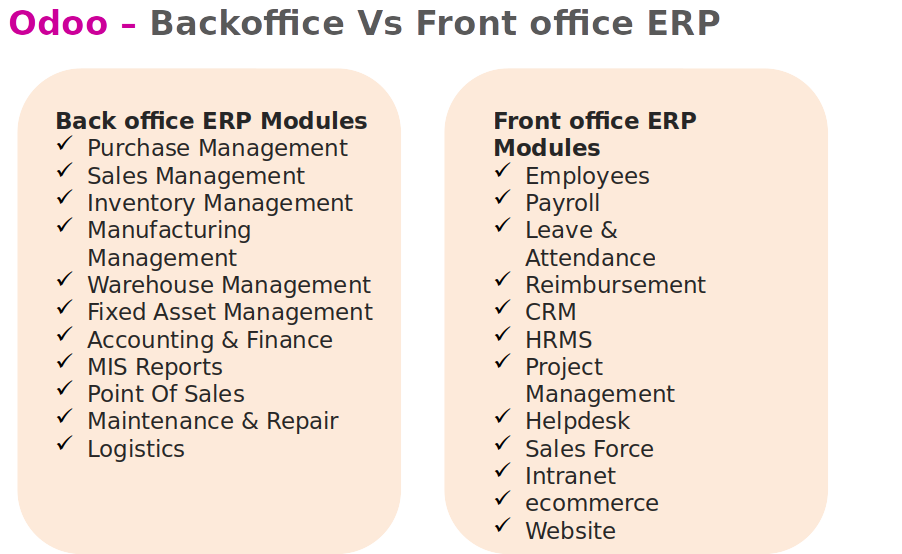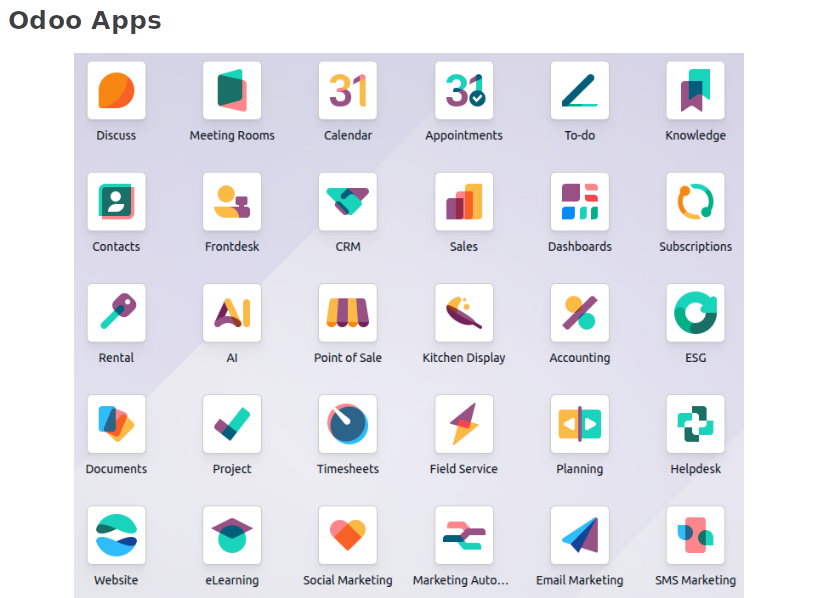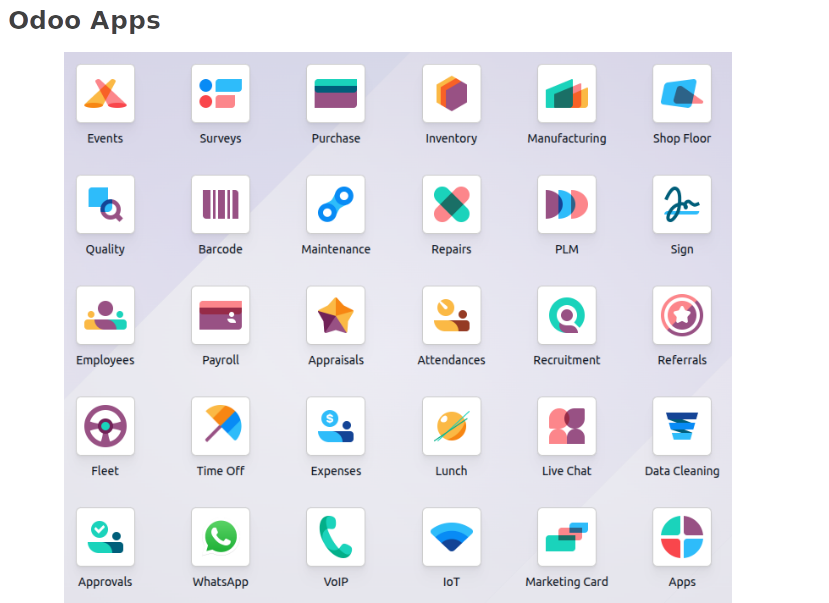Odoo Overview
Odoo ERP is an open-source, all-in-one business management software that helps organizations streamline their operations. It provides a wide range of integrated modules such as Sales, CRM, Accounting, Inventory, HR, Manufacturing, Marketing, and eCommerce.
Why business need ERP?
- No Centralized system to manage all the business processes
- The current system is completely corrupted frequently. Not even able to recover data
- The current system not showing the accurate data as expected
- The current system doesn’t support for future business expansions
- No Support team available for current system
- Not able to do any customizations on the existing product according to future business needs
- More Licence Cost
- No system available to manage activities. All of them done manually through excel which leads to consumption of employee’s time
- No Business process in existing system
- No proper approval process in place
- Not able to submit expected reports to Management
- The current system not helpful for better decision-making.
- No Proper Inventory tracking
- No Production and consumption cost tracking
- Accounting takes longer, and it’s more difficult to manage
- Sales and Customer experiences are suffering
- Not able to capture customer feedback
About Odoo ERP
Being modular and scalable, Odoo allows businesses to start with a few applications and expand as they grow. It is highly customisable, user-friendly, and offers both Community (free) and Enterprise (paid) editions. With deployment options in the cloud or on-premise, Odoo is widely used by SMEs and large enterprises across industries for its flexibility, affordability, and seamless integration of business processes.
Why Odoo?
- All-in-one business management software
- Hosted on the cloud or on premise
- Flexible and Fully Integrated
- Suitable for Any Enterprise
- Supports Back Office & Front Office
- Highly Comprehensive & Extendable
- Plug and Play model
- Intuitive User Interface
- Web/Mobile User-Friendly
- Data Security
- No/Minimal Hardware Management

- Low cost of Implementation
- Proven product
- Built on Latest Technology
- Easy to customise/integrate/migrate
- Multilingual & Multi-Company System
- Integrate with Social media
- Increase the visibility and the control all your enterprise processes
- Easier Scalability and Integration
- Lower Total Cost of Ownership (TCO)
- Quicker ROI
- Powerful Community



Odoo Product Features
Odoo – Multi’s
- Multi-Companies
- Multiple Warehouses & Locations
- Multiple Currencies
- Multiple Taxes
- Multiple Users and Roles
Odoo – Screen Views
- Form View
- List View
- Kanban View
- Calendar View
Odoo – Search Capabilities
- Search by any column.
- Group by any column.
- Order by any column
- Saving Current Search
- Add Search values to the dashboard.
Odoo – Report Views
- Pivot View
- Graph View
- Dashboard
Odoo – Attachments
- Attach Any Type of files
- View Files
- Delete Files
Odoo – Integration
- Mobile App Integration
- SMS Gateway
- Email Integration
- API Integration
- Google Authentication
- Live Chats
- Supports any third party Apps
Odoo – Data
- Import Data from CSV/Excel
- Export Data into CSV/Excel


-
Pingback: Different types of Reports in Odoo 14
